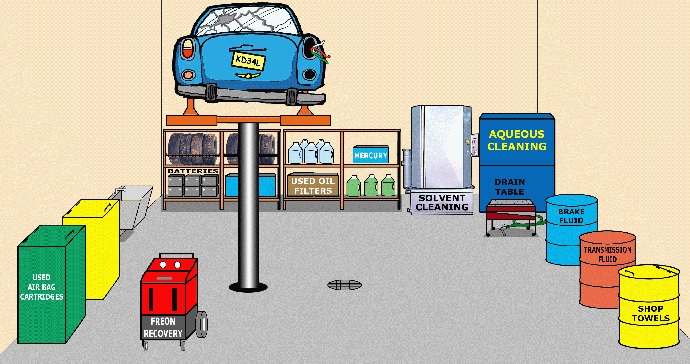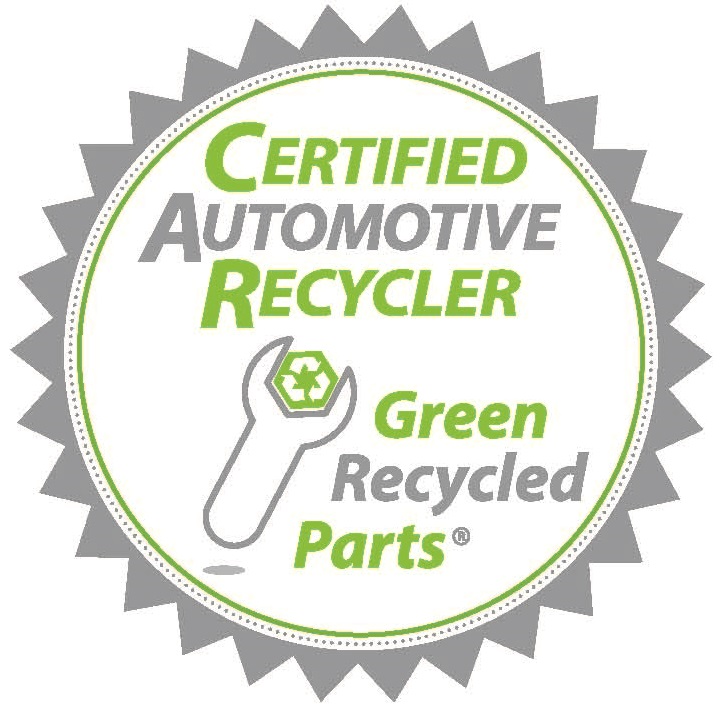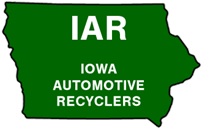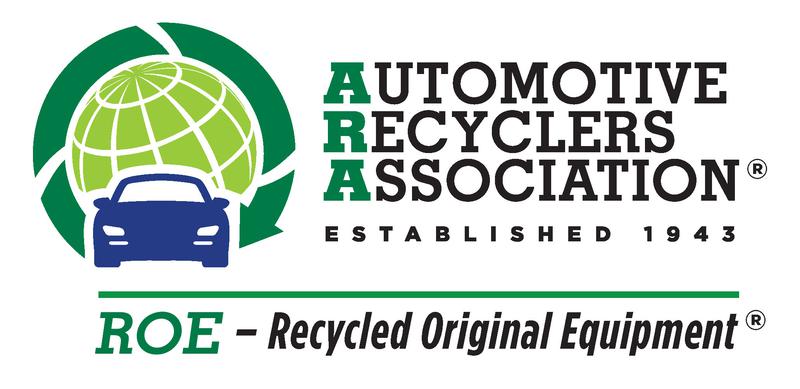Certified Auto Recyclers
Many professional automotive recyclers use a certification program to attain and maintain compliance with environmental, safety and transportation rules applicable to salvage facilities. The Automotive Recyclers Association (ARA) Certified Auto Recyclers (CAR) program sets a standard of excellence as the path to compliance.
The Iowa - Certified Auto Recyclers Environmental (I-CARE) program is the state program affiliate to the ARA CAR Program. I-CARE standards meet the ARA CAR program standards and are specific about the Iowa regulations governing waste management, permitting and safety in the state of Iowa.
Regulatory Agency
The Iowa Department of Natural Resources (DNR) is the agency in Iowa, formed in 1986, charged with maintaining state parks and forests, protecting the environment of Iowa, and managing energy, fish, wildlife, land resources, and water resources of Iowa. The Iowa DNR issues permits for air quality, land application and water discharge. The Iowa DNR does not regulate hazardous waste in the state but defers enforcement to the EPA.Iowa DNR issues Stormwater permits for Automotive Recyclers in the state. For more information, contact the Iowa Department of Natural Resources at 515-281-8941.
The Environmental Protection Agency (EPA) Region 7 (Midwest) office administers and enforces federal hazardous waste management requirements (40 CFR Parts 260-279) in Iowa, Kansas, Missouri, Nebraska and Nine Tribal Nations.
U.S. EPA Region 7
11201 Renner Blvd.
Lenexa, KS 66219
913-551-7003 or toll-free at 1-800-223-0425
Stormwater Regulation
Amendments made in 1987 to the Federal Clean Water Act required the U.S. Environmental Protection Agency (EPA) to develop regulations for stormwater discharges from "industrial activities." Stormwater regulations were established by EPA under the National Pollutant Discharge Elimination System (NPDES) permit requirements for certain types of industrial facilities and industrial activities.
These federal regulations established NPDES permit application requirements for industrial facilities and industrial activities. Since 1978, the Iowa Department of Natural Resources (DNR) has been delegated by the EPA to administer the federal NPDES wastewater discharge permit program. In August 1992, the DNR received authorization from EPA to issue general permits for stormwater discharges. The DNR continues to issue NPDES permits to all stormwater discharges subject to the federal NPDES permit requirements.
Who Needs a Stormwater permit? Any facility engaged in auto recycling with any number of junk cars stored onsite must be permitted under the Iowa DNR NPDES program.
What is a Certificate of No Exposure? Only auto recycling facilities with NO outside storage would be eligible for a certificate of no exposure. There is no exepmtion for zero discharge facilities as stormwater will infiltrate to ground and surface water.
What is a SWPPP? A Storm Water Pollution Prevention Plan is a written plan that identifies the likely sources of contamination from stormwater at the facility and requires periodic inspections to be logged within the plan throughout the year. A sample or template for developing a SWPPP is availabled at
Do I have to take stormwater runoff samples? Yes. In Iowa annual sampling is required for auto recyclers with 250 or more junk cars onsite. A sample must be taken during a rain event and then sent to labroatory and tested for the following parameters:
Both sets of samples, the grab and the composite, must be tested for five parameters:
five day biochemical oxygen demand (BOD); chemical oxygen demand (COD); total suspended solids (TSS);
total Kjeldahl nitrogen (TKN); total phosphorus;
The grab sample must be tested for two additional parameters: oil and grease; pH (field tested with pH meter).
The results do not need to be reported to the Iowa DNR but must be retained onsite and made available upon request.
Spill Reporting
The State of Iowa requires any person manufacturing, storing, handling, transporting, or disposing of a hazardous substance to notify the department and local law enforcement of the occurrence of a hazardous condition. The notification should be made as soon as possible but not later than six hours after the onset or discovery of the hazardous condition. Local law enforcement is also required by Iowa Code to report a "Hazardous Condition" to the department within 6 hours.
If In Doubt…Report It!
515-725-8694
If the hazardous condition involves the release of an EPA regulated material or an oil as defined by the EPA, the release may also need to be reported to the National Response Center at (800) 424-8802. Federal Reporting is required within 15 minutes of event occurrence or discovery.
Resources
Iowa Waste Reduction Center (IWRC) http://iwrc.uni.edu/
The IWRC's primary focus is providing free, non-regulatory environmental technical assistance to Iowa's small businesses.
National Small Business Environmental Assistance Program
The 1990 Clean Air Act Amendments required states to develop programs to help small businesses comply with air quality regulations through a small business environmental assistance providers' programs (SBEAP). Many state technical assistance programs have expanded their air quality focus to provide technical assistance in other environmental areas. Services provided by these organizations for small businesses include multi-media environmental compliance and pollution prevention (P2). P2 services help businesses reduce emissions at the source, often reducing regulatory burden and sometimes saving money.
To access these free, often confidential services and see which ones your state offers, locate your state program at https://nationalsbeap.org/states
Pollution Prevention Resource Exchange (P2Rx™) http://www.p2rx.org/
P2Rx is a national partnership of regional pollution prevention information centers funded in part through grants from EPA. We build networks, deliver P2 information, and measure P2 program results.
Pollution Prevention Regional Information Center (P2RIC) http://p2ric.org/
P2RIC improves resource sharing among the programs, businesses, and agencies within EPA Region 7 (Iowa, Kansas, Missouri, Nebraska) that provide waste reduction services and expertise to business and industry.
P2RIC's projects include:
P2 Infohouse, a searchable online collection of more than 50,000 P2 related publications, fact sheets, case studies and technical reports. https://p2infohouse.org/
P2Ric webinars. Resources and information to achieve resource conservation (energy efficiency, water conservation, waste avoidance, toxics use reduction), focused on the Triple Bottom Line evaluation and adoption of business strategies, management and practices can be found in the online video library at https://vimeo.com/user7854722.
The following fact sheets are designed to assist automotive recyclers with operating their businesses and managing their wastes in compliance with the environmental laws in their state. Select from the list below.







